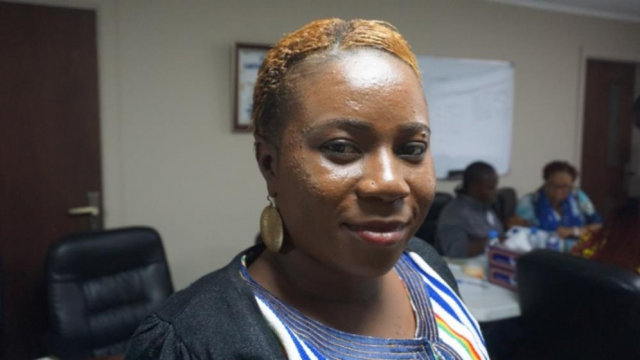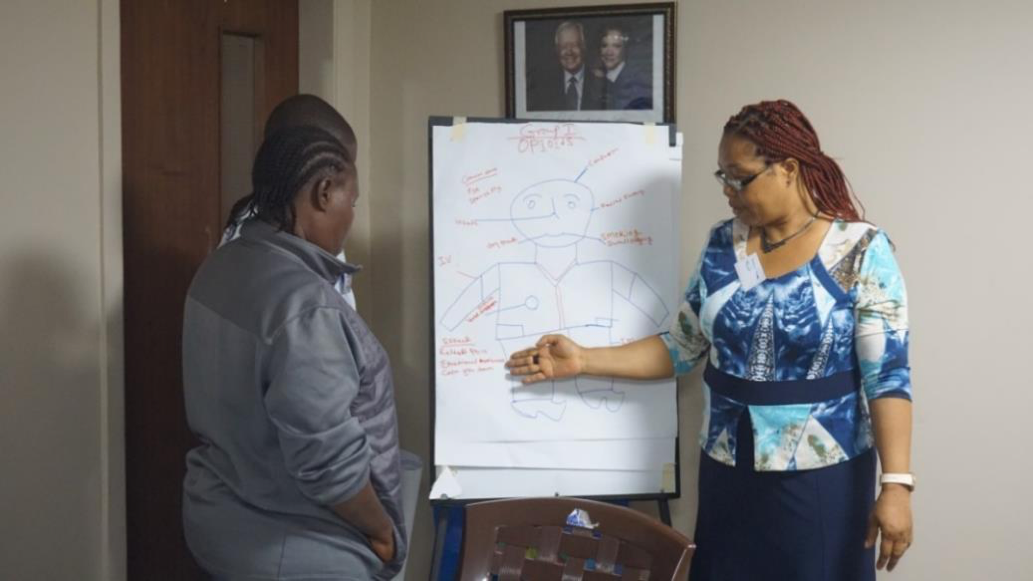MONROVIA, Montserrado – In 2016, after raids conducted by the Liberia National Police at street corners and in ghettos across Monrovia rounded up numerous substance abusers, President Ellen Johnson Sirleaf became concerned about the plight of these individuals.
Boffa Washington, the acting director of the Ministry of Health’s Mental Health Unit, said Sirleaf considered the problem to be not only a criminal issue but also a health issue.
The president directed the Ministry of Health to do a quick intervention for persons with substance abuse disorders and the Mental Health Unit was charged with responding to Sirleaf’s mandate.
An assessment done on the facilities providing services for substance abusers discovered a scarcity of treatment facilities. Further, there were many gaps at the existing facilities, including a lack of workers trained in the field.
Additionally, Washington said, “most of the interventions done at the facilities were faith based and non-scientific.â€

Boffa Washington, acting director of the Mental Health Unit at the Ministry of Health. Photo: Zeze Ballah
While the need was there, the government was not ready to provide funding to tackle the issue and Washington said the Mental Health Unit wrote several proposals and concept papers to solicit funds to train and build the capacity of health practitioners.
Last week, several dozen health professionals, including mental health clinicians, registered nurses, and social workers, recently went through a 10-day training to learn how to better deal with substance abuse disorders.
The Liberia Center for Outcomes Research in Mental Health recently received a grant from the National Oil Company of Liberia to address addiction among young adults in Liberia and the training was held at the Carter Center’s office in Sinkor.
Washington said the training would be held over a period of one year and has four phases, with each lasting for ten days.
George Murini, the program manager for the Colombo Plan Drug Advisory Program in Africa, who served as the lead facilitator, told The Bush Chicken that the training is a universal treatment course that prepares health professionals to offer treatment that is holistic, comprehensive, and integrated.
Murini said the Colombo Plan has been proven to work in about 60 countries.
“I have been informed by professionals in Liberia who are in the drug treatment scenario that they are treating people for heroin, cocaine, tobacco, and alcohol,†he said.
Some of the treatment currently being practiced in Liberia, he said, is “outdated†and “inhumane.â€

George Murini, says the training is meant to build the capacity of health professionals. Photo: Zeze Ballah
Murini said the 20 participants from the six counties will take an examination at the end of the training and if successful, they will eventually become addiction specialists to help intervene in the situation of persons with substance use disorders.
After a successful completion of the training, he said the participants would return to their various facilities and serve as a trainer of trainers to pass on the knowledge acquired to other co-workers.
Joyce N. Hallowanger, one of several participants from Maryland, said as a health practitioner, the training is important because, at some point, she will have to cater to someone abusing drugs.
She said drug abuse is also a serious challenge for youth in Maryland.
“Most of them are in prison because of crimes associated with drugs,†she said.
Joyce explained that she and other colleagues had not been treating substance abusers for their disorder because of the lack of knowledge.

Joyce N. Hallowanger, a mental health clinician from Maryland, attended the training. Photo: Zeze Ballah
The one-year project is being implemented in Montserrado and Margibi.
With such funding from NOCAL, the Liberia Center for Outcomes Research in Mental Health will contribute to realizing the national mental health policy and strategic plan.
Currently, there is no specialized addiction treatment center in Liberia that offers evidence-based treatment for persons with substance abuse disorders.
The E. S. Grant Mental Health Hospital, the nation’s only psychiatric hospital in Liberia, provides limited treatment to persons with mental health and substance use disorders.
The high demand for treatment and the limited bed capacity at the facility results in only a small proportion of persons in need of addiction services being served.
Featured photo Zeze Evans Ballah



